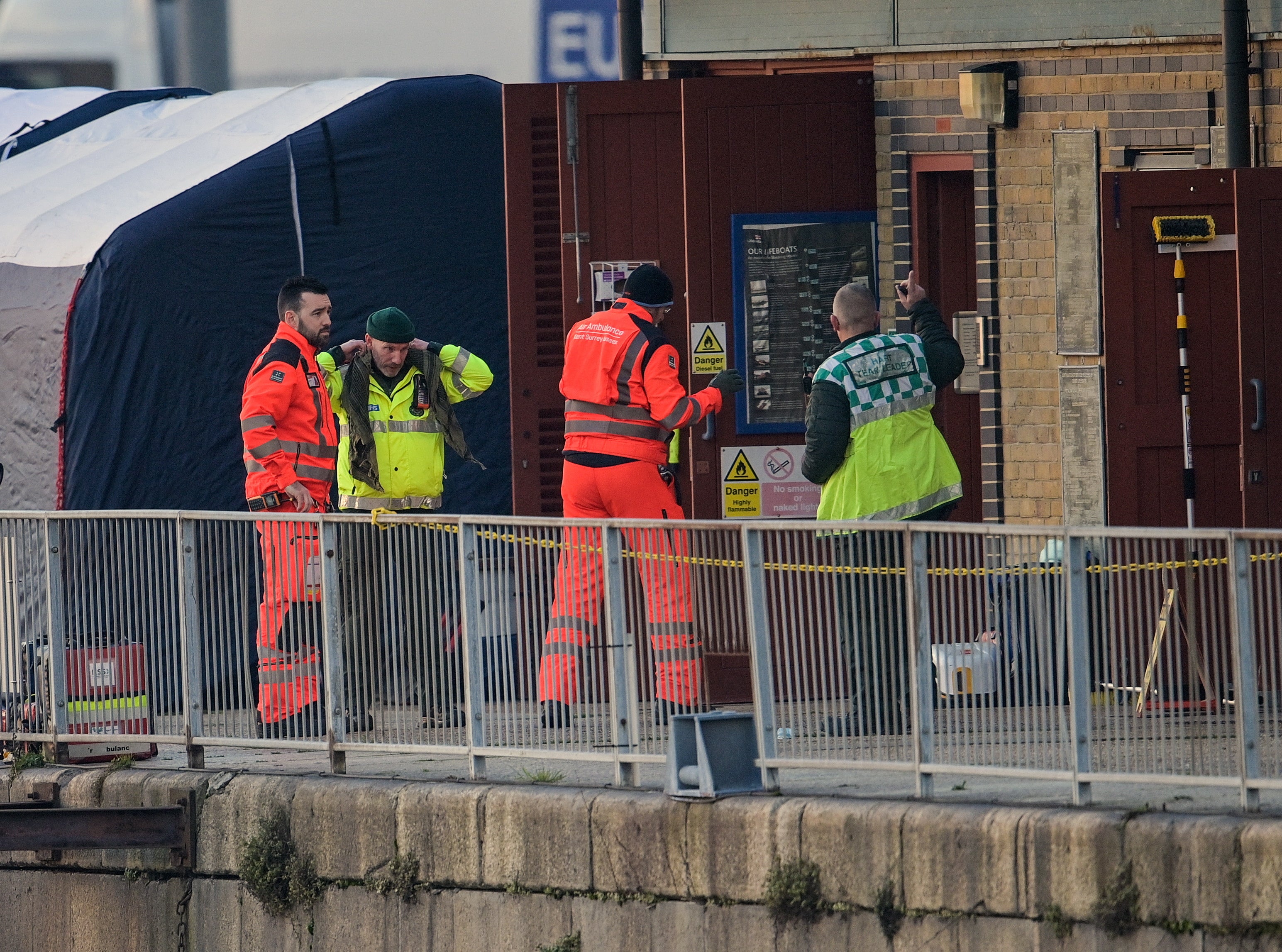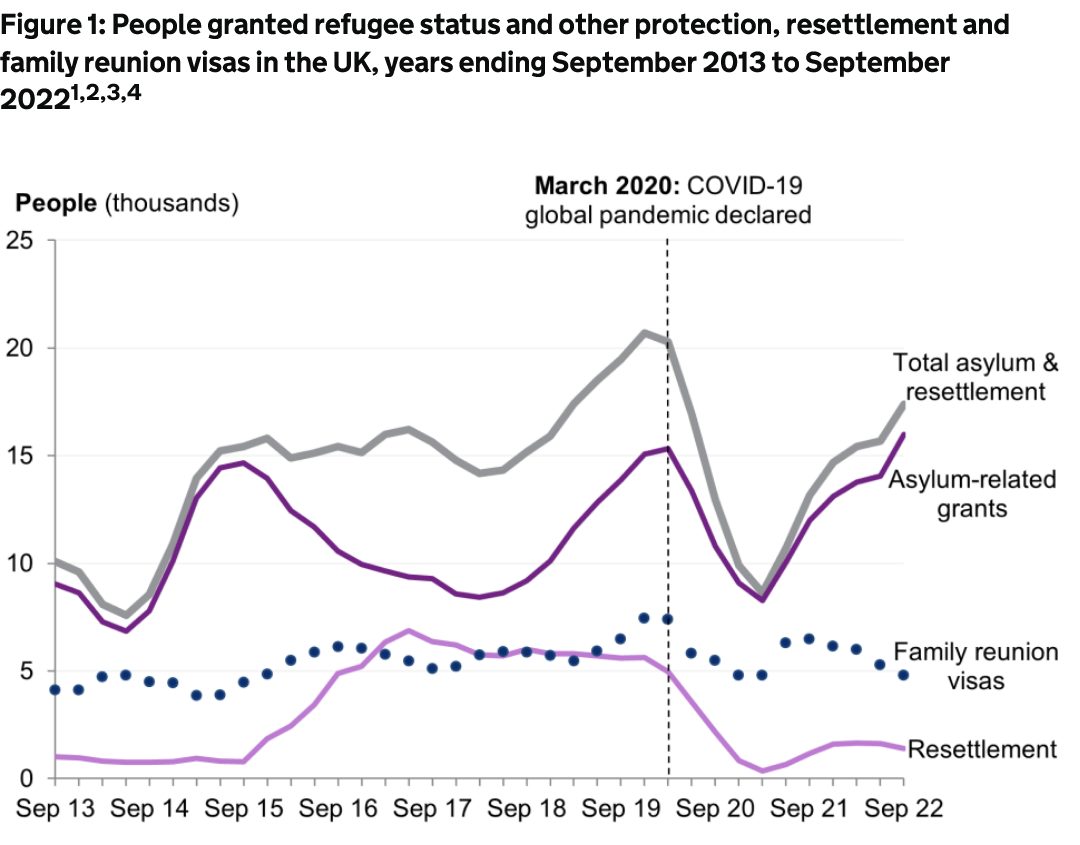Braverman refuses safe alternatives to Channel crossings despite more drownings
Government says it will only create new alternatives to Channel crossings after ‘dealing with smugglers’
Your support helps us to tell the story
From reproductive rights to climate change to Big Tech, The Independent is on the ground when the story is developing. Whether it's investigating the financials of Elon Musk's pro-Trump PAC or producing our latest documentary, 'The A Word', which shines a light on the American women fighting for reproductive rights, we know how important it is to parse out the facts from the messaging.
At such a critical moment in US history, we need reporters on the ground. Your donation allows us to keep sending journalists to speak to both sides of the story.
The Independent is trusted by Americans across the entire political spectrum. And unlike many other quality news outlets, we choose not to lock Americans out of our reporting and analysis with paywalls. We believe quality journalism should be available to everyone, paid for by those who can afford it.
Your support makes all the difference.Suella Braverman is refusing to set up new safe and legal routes for asylum seekers despite another English Channel tragedy in which at least four drowned.
Search efforts were ongoing for more victims overnight, after survivors – including women and children – were pulled from the icy waters by a fishing vessel.
The government was accused of having “blood on its hands” and “forcing people to get on flimsy dinghies” by failing to create alternatives despite years of calls for change from parliamentary committees and charities.
But the home secretary reiterated Rishi Sunak’s pledge to refuse asylum to small boat migrants, saying Channel crossings were “totally unnecessary”.
“We will extend safe and legal routes once we have dealt with the appalling people smuggling gangs risking people’s lives,” she added.
“I’m very proud of the track record that this government has demonstrated over recent years.”
A union representing Border Force and Coastguard staff called on the home secretary to resign “in disgrace”, accusing her of “vilifying and demonising” asylum seekers rather than offering safety.
Official figures show that almost 86,000 people claimed asylum after travelling to the UK in the year to September, but only 1,391 refugees were brought to the country through government resettlement schemes.
Nine in 10 small boat migrants are asylum seekers and more than half of the claims processed so far have been granted, with Afghans, Iranians, Syrians and Iraqis among the most common nationalities.
Ms Braverman hailed the Afghanistan evacuation and separate visa programmes targeting Ukraine and Hong Kong, which do not confer refugee status, but a government report noted that resettlement and family reunion options for other countries “remain below pre-pandemic levels”.
The Care4Calais charity accused the government of having “blood on their hands” over the “wholly unnecessary and preventable deaths” in Wednesday’s tragedy and the disaster that saw more than 30 migrants drown just over a year ago.
The prime minister’s spokesperson said the comment was not “appropriate”, adding: “The government is firmly fixed on resolving this issue and many others talk about wanting to put an end to this – vulnerable people being exploited and making these unsafe journeys.
“We have accepted hundreds of thousands of individuals through safe and legal routes over a number of years.”

MPs from all major political parties challenged the home secretary on why the government would not set up new routes immediately to reduce demand for Channel crossings.
Conservative MP David Simmonds said one of his constituents was an Iranian refugee and her family had “no safe and legal route” to join her in Britain.
“Breaking the model of people smugglers depends entirely on the existence of a safe and legal route,” he warned.
Alison Thewliss, of the Scottish National Party, said that laws passed in April to criminalise Channel crossings had not worked as a deterrent and accused the government of “ignoring reality”.
“Where safe and legal routes do not exist, desperate people will continue to make life-threatening journeys because they feel they have no choice,” she added.
“Safe and legal routes should be expanded now, not at some vague point in the future … dangerous to repeat the same mistakes.”
Ms Thewliss called for the government to reinstate previous routes for unaccompanied children and asylum seekers in EU countries, to allow them to “get on a plane rather than forcing people to get on flimsy dinghies in the depths of winter”.
Under British law, people must be physically present in the country to claim asylum but there is no visa for reaching the UK for that purpose.
Several Labour MPs demanded that the home secretary explain how people who are not from Afghanistan, Ukraine or Hong Kong could claim asylum in the UK without resorting to a small boat.

Ms Braverman said there were “several mechanisms” and denied that the UK’s system was inadequate, but added: “People do not need to seek asylum if they are already in a safe country.”
Earlier this year, a senior National Crime Agency official told The Independent that while it was attempting to arrest smugglers in France and attack their logistics and supply chains, Channel crossings were being driven by “a degree of supply and demand”.
He said migrants on the French coast are “determined to cross the Channel” after making long journeys at great financial cost.
Ms Braverman said the policies announced by the prime minister on Tuesday would act as a deterrent but an internal Home Office research document from September 2020 advised ministers that many asylum seekers “have little to no understanding” of UK law.
The report warned that refugees “can be displaced into irregular migration routes by limited or absent legal and safe migration routes”.
Similar warnings have been sounded by several major reports, including one by parliament’s Foreign Affairs Committee that said “in the absence of robust and accessible legal routes for seeking asylum in the UK, those with a claim are left with little choice but to make dangerous journeys by land and sea”.
A 2020 report by the immigration watchdog said Home Office officials told inspectors that small boats rose “as a consequence of the success of the extensive work done by the UK and its European partners, in particular the French, in making other methods of illegal entry more difficult”.
French politicians have called for change, with president Emmanuel Macron telling the European parliament in January: “They have not sufficiently organised legal, stable, secure ways and means to seek asylum in Britain. That is why we are faced with this situation.”




Join our commenting forum
Join thought-provoking conversations, follow other Independent readers and see their replies
Comments